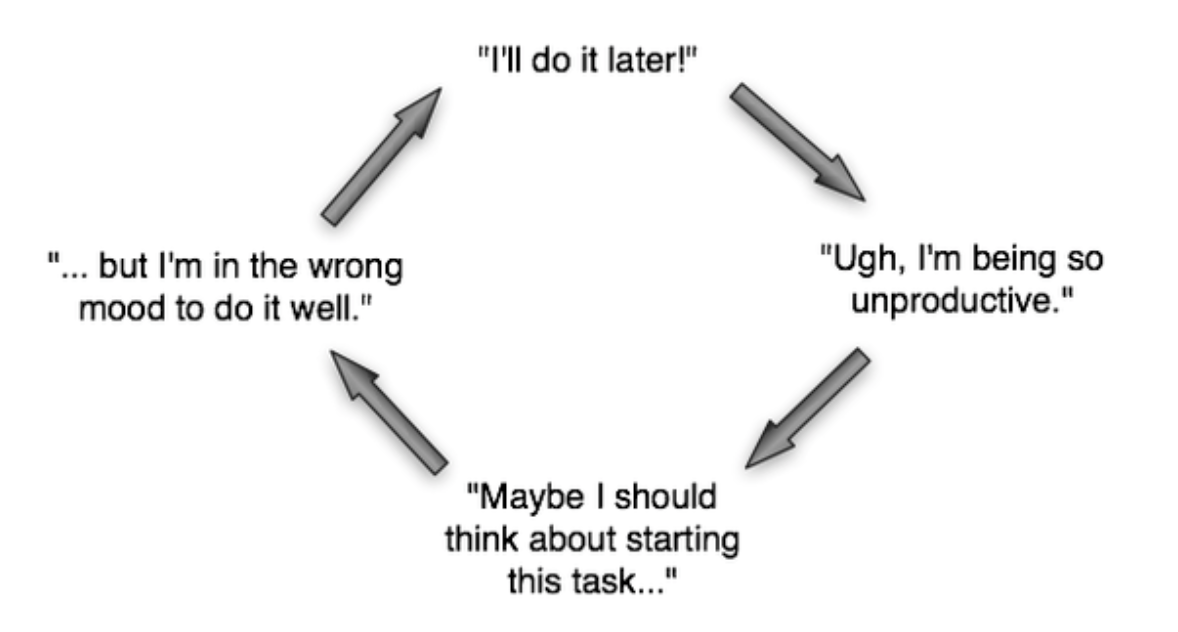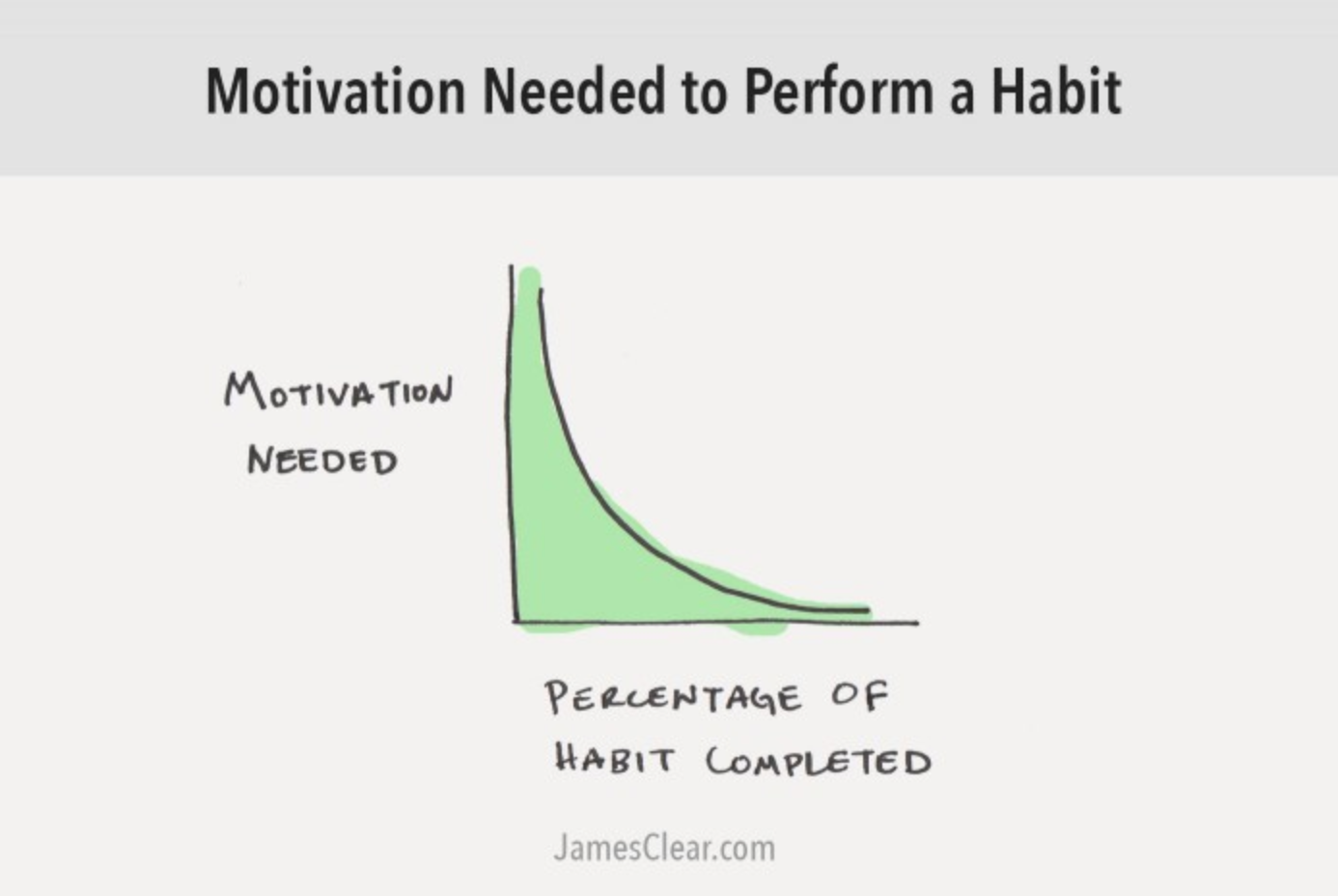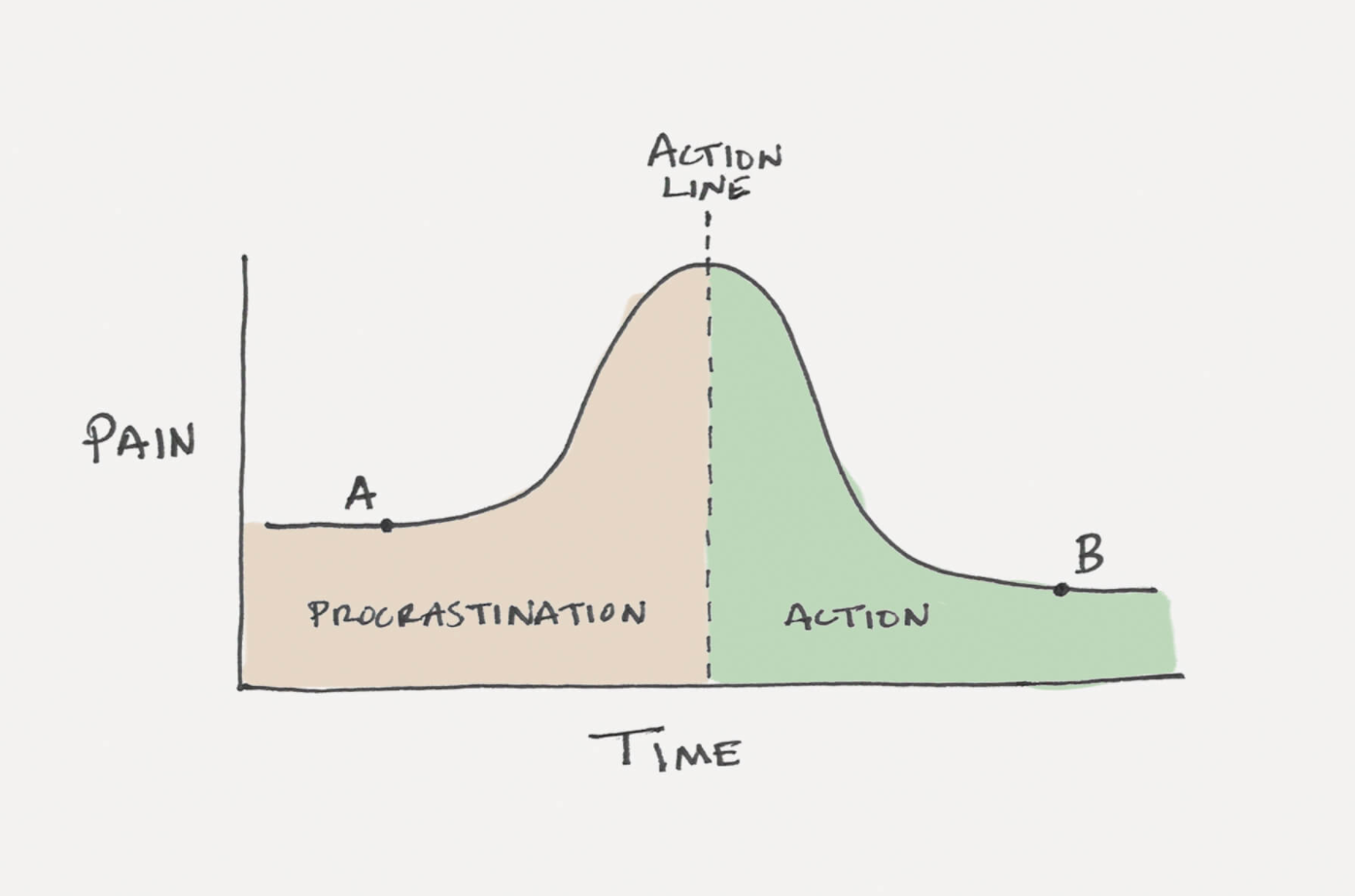Table of contents
"Tomorrow - A mystical land where 99% of all human productivity, motivation and achievement are stored"
Regardless of how many productivity books we've bought (and haven't read) or how many motivational videos we've watched (and never acted upon), we all struggle at some point during our lives with the productivity plague of the modern era - procrastination.
In fact, procrastination is not new. Ancient Greek philosophers developed a word for it – akrasia – meaning to act against our better judgement by doing one thing even though we know we should be doing something else. Since then, this innate affliction to act against our better judgement, delay necessary action and procrastinate over our personal tasks has evolved to such an extent that the humour of the opening quote really comes from the fact that it's so painfully true.
In this post, we'll discuss (1) Why we all procrastinate, (2)How we can stop procrastinating.
Why do we procrastinate?
Procrastination is a perfect example of present bias.
Present bias is the idea that even though we can set as many goals for our future self as we want, it's our present self that has to do the action to get there. Unfortunately, our brains aren't wired to appreciate long term benefits and our present self will always prefer short-term pleasures in the form of instant gratification which often comes at the expense of longer term outcomes.
Here's what a 2013 study called procrastination:
Procrastination is the primacy of short-term mood repair … over the longer-term pursuit of intended actions.
In other words, procrastination is about being more focused on the immediate urgency of managing negative moods and pushing the problem away than getting on with the task in the present moment.
When we put things off until some point in the future (eg: tomorrow, next week or worst of all, 'at some point'), the tension we feel disappears. The task is lifted off our shoulders. We feel happy that we've assigned a time to get the task done, even if that time is 'at some point in the future'.
The confusing thing about procrastination is that, in certain scenarios, we know we can't afford to procrastinate.
In my job as a doctor, I can't delay treating someone just because it involves doing something unpleasant, or if it means I have to stay overtime.
But when I have the space and freedom to manage my own time, suddenly that world of distraction and the ability to make excuses to myself means that I feel able to offload many tasks onto my future self.
And yet we know that procrastination isn’t good for us.
Delaying tasks that we simply have to do is going to catch up with us at some point. Especially if those tasks have deadlines, or carry consequences for not doing them. Eventually we'll feel the effects of our delaying tactics.
So what can we do about procrastination?
Well, for me, understanding the truth behind two key factors - motivation and momentum - and using a couple of simple rules - the two minute rule and the ten minute rule - have all helped reduce the burden that procrastination brings to my life.
Motivation
It's typical to hear people say "I just can't summon up the motivation", "I wish I had more motivation" or "I need some motivation to start".

The truth is, we've got motivation wrong.
Motivation is not the spark or the cause of action, it's the result of that action.
As Jeff Haden says in his book 'The Motivation Myth'
Motivation isn’t something you have, motivation is something you get, automatically, from feeling good about achieving small successes.
If action is conditional on feelings, waiting for the right mood becomes a particularly insidious form of procrastination. Whether we like to admit it or not, motivation is basically a myth.
So, if not motivation, then what?
I've started to replace the idea of motivation with that of discipline. Discipline is like an engine that, once started, actually supplies energy to our system. It also creates habits which means that we don't have to rely on willpower alone to try to summon up some short term burst of energy.
In essence, discipline produces action which leads to a more sustainable form of motivation.

Overcoming or getting past the idea of 'finding' motivation can help you get started. Getting started is the key factor for the other critical idea - Momentum.
Momentum
The resistance we have to a task is usually at its greatest before we begin. The simple thought of starting and overcoming that resistance is where procrastination thrives.
In fact, Steven Pressfield in his book, THE WAR OF ART, describes this feeling of 'the resistance' as a universal force that has one sole mission: to keep things as they are, preventing action, creativity and progress.
In other words, resistance provides the beating heart of procrastination.
BUT as soon as we start, as soon as we cross the action line, the pain begins to subside. The problem is not doing the work but just starting the work.
Momentum can't build up by putting something off. A ball can't start rolling down a hill until you push it over the edge but once you've pushed it over the edge, it builds momentum and is difficult to stop.

James Clear calls this the "physics of productivity" because of how it relates to Newton's First Law of Motion or the Law of Inertia which states that:
Every body remains in a state of constant velocity unless acted upon by an external unbalanced force.
When we're procrastinating we're in a state of rest - motivation doesn't start the ball rolling. Only action can act as the "external unbalanced force" to push us into a state of motion. Once moving, a feedback loop develops and it becomes harder to stop because the desire to complete tasks provides the drive necessary to continue moving forward.
As soon as I realised this, I began to be more mindful of developing this momentum. It reinforces the importance of starting, in whatever way possible, because any action will start the ball rolling, making subsequent actions easier and procrastination more difficult.
The Two Rules for Beating Procrastination
For many of us, procrastination usually revolves around tasks that are either:
- Small and annoying OR
- Large and daunting.
After learning to appreciate the importance of motivation and momentum, I've found two techniques that are particularly helpful in overcoming each of these types of task: the two-minute rule and the ten-minute rule.
The Two-Minute Rule
The two-minute rule is a concept put forward by productivity guru David Allen in his book Getting Things Done. The main idea is that, if we have a pending task that can be completed in less than two minutes then we should do it right away. No hesitation, no delay. If it'll take longer than two minutes we should write it down on a list to return to when we have more time.
It's as simple as that.
This strategy of time management eliminates unnecessary procrastination over small chores or tasks and reduces the clutter in our brain that distracts us from the bigger picture.
The 10-Minute Rule
Clearly there are some tasks that we can't just complete in two minutes. Planning, writing and filming a whole YouTube video can't be completed in two minute segments. Writing a thesis would be difficult to complete in 2 minute intervals. Creating a presentation at work is difficult to create in 2 minutes. You get the idea.
However, if we do find ourselves procrastinating over these larger, more daunting tasks, the other technique I use to get started is the 10-minute rule.
The 10-minute rule is simple. If I'm finding myself procrastinating from something I have to do, I tell myself that I'm just going to do it for 10 minutes. No more, no less. Just 10 minutes.
But the power behind this technique goes back to the idea of momentum.
Once I've got going, having done 10 minutes, I don't want to stop especially when I'm making progress. Suddenly momentum builds up, one task leads to another which leads to another. Obviously, you might be bored after 10 minutes but we don't like leaving tasks half-done and so 10 minutes quickly turns into 20, then 30 and suddenly you're making progress.
Some people call this the 30 minute rule, the 20 minute rule, the 5 minute rule - it doesn't really matter what it's called, the idea is the same: we're tricking our brain into getting started because we think we won't be doing it for long.
Fundamentally, overcoming procrastination is about maintaining discipline, generating momentum and ensuring that the tasks that you need to do on any given day are achievable and manageable.
Despite the advice that I've given in this article, I still struggle with moments of procrastination. We all do.
Procrastination is a character flaw that we all have. What matters is that we can recognise it, learn to manage it, develop strategies to overcome it and create a system that minimises the opportunity for it to emerge in the future - that's something we can all start developing today, or maybe leave it till tomorrow...

